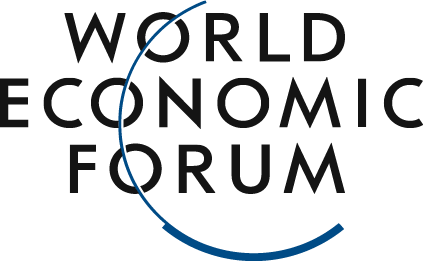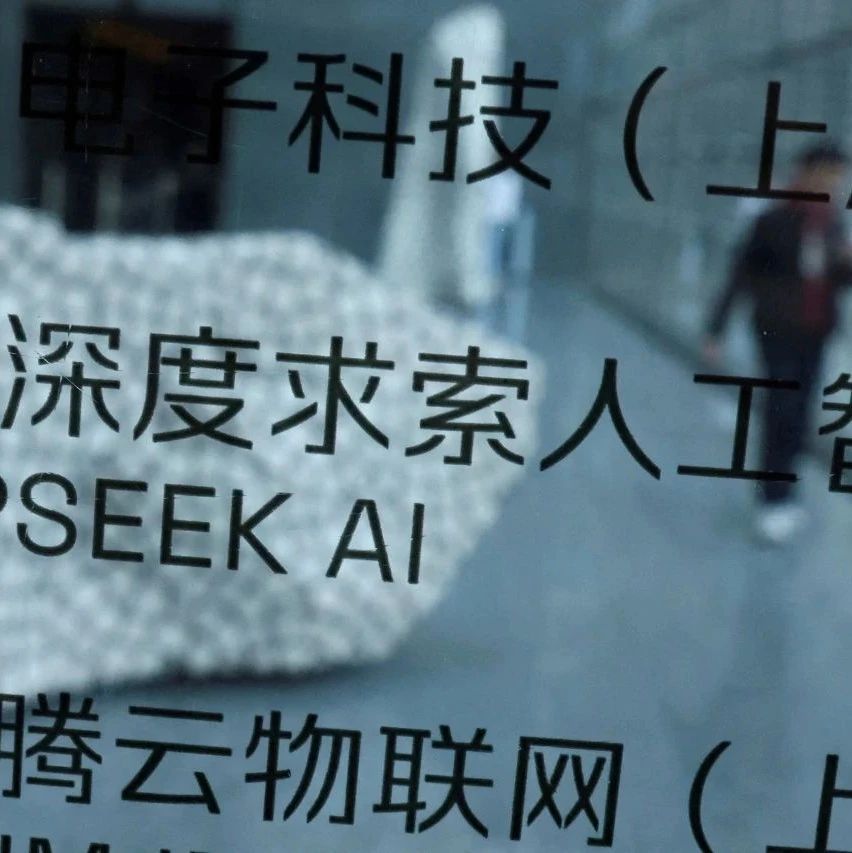The World Economic Forum welcomes 12 new members to its Global Lighthouse Network—a community of 201 industry-leading companies that are pioneering the adoption of cutting-edge technologies in manufacturing.
Among the newly selected Lighthouse Factories, two were honored for achieving groundbreaking results in customer-centric innovation, four were recognized for their exceptional production efficiency, four for supply-chain resilience, two for sustainable development, and one for talent development.
The latest batch of Lighthouse Factories is spread across 7 countries, with six located in China, and one each in Mexico, Singapore, Thailand, Turkey, Qatar, and France.
To read the latest report from the Global Lighthouse Network, please click at the end of the article.Read the original textFor more details on the Global Lighthouse Network and to stay updated on the Forum 2025 Sustainable Development Impact Conference, please visit the World Economic Forum website. Feel free to use the hashtag!#2025 Sustainable Development Impact Conference#, share meeting updates on social media.
Today, the World Economic Forum welcomed 12 innovative manufacturing companies to the Global Lighthouse Network. With this addition, the network community now comprises 201 cutting-edge production facilities and value chains that are pioneering the large-scale adoption of diverse digital technologies—achieving remarkable performance in areas such as production efficiency, supply-chain resilience, talent development, sustainability, and customer-centricity.
Looking at the newly selected Lighthouse Factories, three key trends are profoundly shaping their operational excellence: First, they’re leveraging AI and advanced analytics to drive decision-driven, collaborative innovation. Second, highly interconnected organizations are expanding their focus beyond individual factories, actively influencing the entire supply chain. Finally, talent development, combined with company-wide sustainability initiatives, is pushing performance metrics to new frontiers. These Lighthouse Factories, located across China, Mexico, France, Thailand, Turkey, Qatar, and Singapore, will use the global Lighthouse Network platform to share best practices across industries and regions—accelerating collective progress and fostering widespread growth.
“Organizations currently driving systemic and holistic transformations will shape the future—they’re embedding digital innovation, resilience, sustainability, talent development, and a customer-first mindset into every aspect of their operations,” said Kiva Allgood, Managing Director at the World Economic Forum and Head of the Center for Advanced Manufacturing and Supply Chains. “Warmest congratulations to the newly elected Lighthouse Companies—visionary enterprises spanning industries and geographies worldwide, demonstrating how to turn aspirations into action and setting entirely new global benchmarks for operational excellence and impact.”
On average, newly designated Lighthouse Factories have boosted labor productivity by 40% and reduced delivery times by 48%. Compared to previous years, the adoption of AI and generative AI use cases has increased significantly, enabling 50% of implemented applications. These technology-driven initiatives have yielded far-reaching benefits, such as cutting product defect rates by 41%, lowering energy consumption by 28%, and shortening production cycles by 44%, among other impressive outcomes.
"Global supply chains, once optimized for cost and scale, are now being redefined by factors like proximity, risk, and resilience," said Cedrik Neike, CEO of Siemens Digital Industries and Global Lighthouse Network Ambassador. "The Global Lighthouse Network showcases how manufacturing companies can turn challenges into opportunities within a globally localized landscape. By focusing on technology, sustainability, and empowering employees, the newly added Lighthouse Factories demonstrate that transformation can deliver both flexibility and competitive advantage."
Customer-first Lighthouse
Distinction in Customer Centricity
These manufacturing plants leverage technological tools for design and procurement, optimizing batch sizes, delivery timelines, product costs, and operational performance—resulting in exceptional speed-to-market and customized offerings. Newly recognized Customer-First Lighthouses include:
Eaton Power Equipment Co., Ltd. (Changzhou, China):Eaton's Changzhou factory manages an impressive inventory of up to 164,000 stock keeping units (SKUs) and handles more than 5,000 customized designs annually. By embracing digital transformation, the plant has significantly enhanced its agility and cost efficiency. The integration of artificial intelligence and simulation technologies has dramatically reduced design cycles, while advanced robotic systems have been introduced to boost workforce productivity. Additionally, cutting-edge generative AI and digital twin solutions have been developed to strengthen the factory’s ability to respond swiftly to market demands. As a result, without increasing its headcount, Eaton’s Changzhou facility has achieved remarkable outcomes: a 39% reduction in delivery times, a 50% improvement in operational efficiency, and a stunning 129% surge in revenue.
Metler Toledo International Co., Ltd. (Changzhou, China):To meet the growing demand for customized solutions, address the fragmented market landscape, and given that 34.8% of the company’s orders are single-item orders, Mettler Toledo’s Changzhou factory has embarked on a digital transformation journey. The facility has deployed 49 use cases of Fourth Industrial Revolution technologies, including AI-powered product configuration tools, reconfigurable modular cluster workstations, and machine-learning-driven systems that automatically detect welding defects and enable—enhancing product quality in the process. Thanks to these innovative solutions, the plant has achieved a 98.4% on-time delivery rate, reduced its lead time by 22%, and earned a Net Promoter Score of 84.9.
Production Efficiency Lighthouse
Distinction in Productivity
These manufacturing plants have achieved outstanding cost and quality benefits through technology-driven transformation, enhancing asset utilization, empowering employees, and optimizing resource management. The newly recognized production efficiency lighthouses include:
GlobalFoundries Semiconductor Pte. Ltd. (Singapore):To address the talent shortage and meet surging market demand—particularly for advanced automotive equipment—Grohmann’s Singapore Fab 7 facility has implemented over 60 use cases of Fourth Industrial Revolution technologies. These innovations are designed to tackle growing process complexity, uphold increasingly stringent quality standards, and accelerate prototype development. The plant has assembled a comprehensive transformation team that collaborates with AI service providers and leading universities across four key areas: predictive maintenance powered by machine learning, remote support solutions, machine-learning-driven quality control, and workflow digitalization. As a result, the factory has achieved a 40% increase in production efficiency and reduced new product introduction time for prototyping by 30%.
Haier Washing Appliance Co., Ltd. (Shanghai, China):To meet the demands of the high-end market while effectively addressing regional cost pressures and stringent quality requirements, Haier established its Shanghai factory as a new production base in 2022. Leveraging its independently developed industrial IoT platform and integrating cutting-edge technologies such as GenAI-powered 3D modeling and deep learning, the company successfully achieved a 37% increase in production output, a 40% improvement in delivery efficiency, and a 33% reduction in costs.
Shell Qatar Gas-to-Liquids Co. Ltd. (Ras Laffan, Qatar):As the operator of the Pearl GTL project, representing and serving the government of the State of Qatar, this world-leading GTL plant aims to produce an average of 260,000 barrels of liquid hydrocarbons daily from natural gas. To achieve this ambitious goal, Shell Qatar Gas-to-Liquids Limited has successfully addressed early challenges related to asset integrity and reliability. By deploying 45 use cases of Fourth Industrial Revolution technologies—such as leveraging artificial intelligence to ensure structural integrity—and empowering frontline teams, the company has boosted on-site throughput by 9%, increased reliability to 99%, reduced emissions by 7%, and extended equipment lifespan by 50% over the past five years.
Tongwei Solar Co., Ltd. (Meishan, China):In an increasingly competitive solar cell market, Tongwei has focused its digital transformation efforts on enhancing battery power conversion efficiency (PCE) and improving product quality. The facility has deployed more than 50 Industry 4.0 application cases, most of which leverage artificial intelligence: machine learning is used for process optimization, generative AI powers predictive maintenance, and cutting-edge AI algorithms are employed to analyze defects. As a result of this transformation, the factory has achieved a 12% improvement in battery PCE, a 41% reduction in defect rates, a 37% decrease in conversion costs, and a 33% drop in carbon dioxide emissions.
Supply Chain Resilience Lighthouse
These Lighthouse factories have achieved exceptional service and agility by transforming their supply chains—spanning areas such as planning, order fulfillment, and logistics—while also enhancing transparency and optimizing working capital management. The newly selected Supply Chain Resilience Lighthouses include:
Lenovo Group's Monterrey Manufacturing Facility in Mexico (Monterrey, Mexico):As Lenovo Group's largest wholly-owned manufacturing facility in the Americas, the Monterrey, Mexico, manufacturing base sources materials from more than 2,000 suppliers worldwide, producing over 52,000 models of desktops, laptops, and servers—products that are then delivered to more than 80 markets globally. To meet growing customer demands for quality and delivery reliability, as well as address the challenges posed by rising labor costs in Mexico, Lenovo’s China-based team collaborated closely with its local Mexican team to implement over 60 digital solutions, more than half of which leverage artificial intelligence (particularly generative AI) technologies. These initiatives have dramatically transformed factory performance: delivery cycles have been shortened by 85%, logistics costs slashed by 42%, quality-related losses reduced by 56%, carbon emissions cut by 30%, and overall production efficiency boosted by 58%. Today, the Monterrey manufacturing base has emerged as Lenovo Group’s global benchmark for digital transformation and operational excellence.
Midea Refrigeration Equipment Co., Ltd. (Thailand, Si Racha):To address challenges such as inflexible cross-border supply chains, slow customer quality feedback responses, and training barriers, Midea has deployed 72 digital and AI-driven solutions aimed at building a more resilient global supply network, enabling closed-loop quality improvement, and empowering the workforce with generative AI capabilities. As a result, the company has achieved a 43% reduction in end-to-end order lead times, a 32% decrease in customer complaints, and a 62% reduction in employee certification time.
Turkish Petroleum Refining Company Tüpraş (Izmit, Turkey):After commissioning its residual oil upgrading unit in 2014, Tüpraş’s Izmit refinery has faced multiple challenges, including the growing diversity of crude oil types, rising product complexity, and increasingly severe port congestion issues that have put pressure on its trading operations. To address these challenges, the refinery launched a digital transformation initiative aimed at integrating key processes across the value chain—such as planning, inventory management, and logistics. By deploying AI-powered predictive and optimization solutions, the plant has boosted delivery reliability from 85% to 95%, reduced average truck-loading times by 75%, increased forecasted labor productivity by 48%, cut CO₂ emissions by 8%, and slashed water consumption by 31%.
Yunnan Baiyao Group Co., Ltd. (Kunming, China):To meet rapidly evolving consumer demands, manage the volatility of e-commerce, and expand into lower-tier markets, Yunnan Baiyao has addressed critical challenges related to inconsistent quality in its key herbal ingredients—as well as quality variability stemming from dispersed cultivation areas. By deploying over 40 use cases of Fourth Industrial Revolution technologies, including satellite remote sensing, industrial IoT, and large language models, the company has significantly improved supply chain efficiency: reducing raw material return rates by 78%, inventory turnover by 38%, and out-of-stock incidents by 30%. This has enhanced both the stability and responsiveness of its supply chain.
Sustainable Lighthouse
Distinction in Sustainability
These manufacturing plants are committed to fully achieving net-zero, decarbonization, and circular economy goals. By deploying cutting-edge solutions, they’ve significantly reduced energy consumption, emissions, water usage, and waste generation, positioning themselves as industry leaders in this space. The newly recognized Sustainable Lighthouses include:
Qingdao Hisense Hitachi Air Conditioning Systems Co., Ltd. (Qingdao, China):To advance its corporate sustainability strategy, Hisense Hitachi has deployed 27 Fourth Industrial Revolution solutions at its Qingdao factory, aiming to comprehensively reduce carbon emissions across the entire product lifecycle. These initiatives address key areas including refrigerant leaks within the plant—accounting for 96% of Scope 1 emissions—and R&D and operational activities, which contribute 46% of Scope 2 emissions. Additionally, the strategies tackle emissions from raw material procurement and customer usage stages, which together make up more than 90% of Scope 3 emissions. Leveraging IoT technology and advanced data analytics, the company has successfully cut refrigerant leakage rates by 56%. Through targeted process optimizations, it has also achieved a 48% reduction in total Scope 1 and Scope 2 emissions. Furthermore, customized control strategies tailored to specific environmental parameters at customer sites have helped lower Scope 3 emissions during product use by an additional 28%.
Schneider Electric Distribution Center (Évreux, France):To address resource scarcity, regulatory demands, and customer needs, Schneider Electric has transformed its factory in Évreux into its first circular distribution center. The facility has adopted an end-to-end "use more efficiently, extend product life, and enable reuse" model, enabling large-scale resource recycling across the board. Innovative technologies deployed include a digital customer platform capable of ordering and returning over 3,000 stock-keeping units, a data-driven model that seamlessly connects products with repair, refurbishment, and repackaging hubs, as well as circular solutions implemented in areas like packaging, transportation, and energy management. Thanks to these initiatives, the plant has reduced its use of single-use plastics by 40% and lowered energy consumption by 18%.
Talent Lighthouse
Distinction in Talent
These types of Lighthouse Factories implement advanced solutions across key areas such as work planning and safety, talent management, recruitment and onboarding, as well as employee development and performance enhancement—resulting in transformative impacts on their workforce. Newly selected Talent Lighthouses include:
Haier Refrigeration Appliance Co., Ltd. (Chongqing, China):Facing high employee turnover among the new generation and bottlenecks in boosting productivity, Haier’s Chongqing factory has innovatively adopted the “Person-Order Integration” management model, enabling a transformation from a control-oriented organization to a service-driven platform. By implementing 35 digital and AI-based talent empowerment initiatives—ranging from personalized career advancement pathways and an innovation-point incentive platform to intelligent workforce planning at the team level powered by multi-dimensional time-series forecasting—the factory has achieved a 40% reduction in employee attrition and a remarkable 61% increase in employees’ proactive engagement in innovation.
At the same time as announcing the aforementioned list of selected organizations, the World Economic Forum will also simultaneously release an insightful report titled "Empowering Frontlines: Retaining, Training, and Upskilling Industrial Workforce." This report will highlight how Lighthouse Factories are pioneering new approaches to address critical challenges such as talent retention, skills enhancement, and workforce reskilling. The report is also one of the key outcomes of the World Economic Forum's "Future of Frontline Talent" initiative, which focuses on identifying best practices from leading factories to help organizations attract, develop, and engage frontline employees effectively. Ultimately, the initiative aims to foster people-centric, high-performance operations while actively shaping the factories and supply chains of tomorrow for sustained success.
About the Global Lighthouse Network
The Global Lighthouse Network was launched in 2018, bringing together and recognizing world-class factories that have achieved outstanding performance in areas such as production efficiency, supply chain resilience, customer-centricity, sustainability, and talent development. This global community, comprised of influential and innovative companies, has already deployed over 1,000 solutions across multiple industries, with its membership now including 201 factories. Today, the network spans more than 30 countries and covers 35 distinct industries.
The Global Lighthouse Network is an initiative of the World Economic Forum. Launched jointly by the World Economic Forum and McKinsey & Company, the network is guided by an advisory board comprising industry leaders such as Foxconn Industrial Internet, Goz Holding, McKinsey & Company, Schneider Electric, and Siemens—each committed to shaping the future of global manufacturing together. Factories and value chains joining the network are assessed by an independent panel of experts. The next round of applications to join the Global Lighthouse Network will open in December 2025.
About the 2025 Sustainable Development Impact Conference
The World Economic Forum’s 2025 Sustainable Development Impact Summit will take place from September 22 to 26 in New York, USA, bringing together approximately 1,000 global leaders from diverse industries and regions. Held ahead of the World Economic Forum’s 2026 Annual Meeting, this event is part of the forum’s annual conference schedule, focusing on fostering multi-stakeholder dialogue, catalyzing collective action, and accelerating progress toward sustainable development.

The World Economic Forum is an independent and neutral platform dedicated to bringing together diverse perspectives to discuss critical global, regional, and industry-specific issues.
Follow us on Weibo, WeChat Video Channels, Douyin, and Xiaohongshu!
"World Economic Forum"


